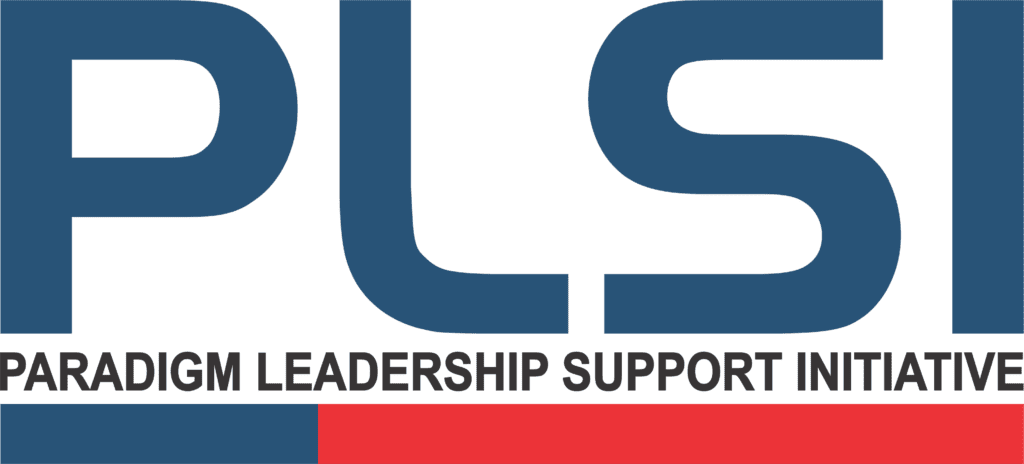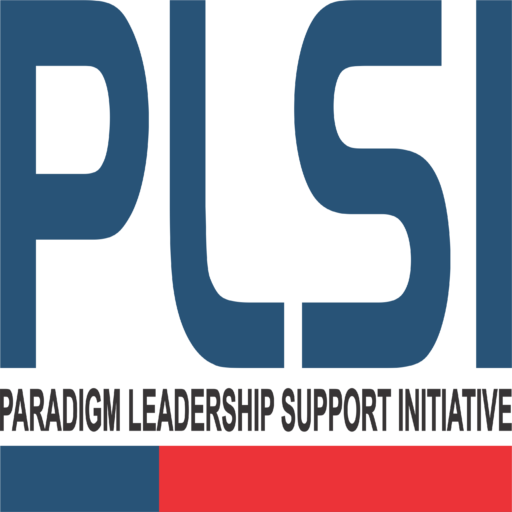The global surge in the creation, adoption, and implementation of technology and artificial intelligence is unprecedented. These powerful tools have the potential to greatly benefit humanity by transforming various aspects of our lives and society. Additionally, they can play a crucial role in promoting good governance and accountability. One of the most overlooked benefits of Artificial Intelligence (AI) in the public sector is its potential to strengthen the operations of government and ease citizen’s accessibility to data and information needed for participatory governance and improved service delivery.[1]
Emerging technologies are increasingly gaining ground globally, especially in the wake of the industrial revolution: and gradually finding relevance in the public sector domain. For instance, Podger (2020: p.207) reported that ‘there have been extraordinary developments in new technologies and their utilisation in recent years, China and Australia being two examples in the Asia Pacific region’. It is observed that the governments in the two economies have recognized the potential efficiency of emerging technology, and are increasingly conscious that their citizens anticipate them to responsibly and conveniently deliver services to them: as such resorting to the use of emerging technology.[2]
On May 16, 2024, Paradigm Leadership Support Initiative (PLSI) organised a focused group discussion to explore the role of emerging technologies, particularly Artificial Intelligence (AI), in promoting transparency and accountability in Nigeria. This event brought together anti-corruption and accountability actors from national and subnational levels. One highlight at the discussion was the presentation of PLSI’s revamped civic technology platform, “Value for Money 3.0” to stakeholders for pre-deployment assessment. The upgraded platform, initially launched in 2016, now incorporates AI-enabled features to enhance citizen participation in combating public sector corruption and strengthening accountability across all levels of government in Nigeria. Petitions regarding service delivery and public finance management, which previously took weeks or months to submit to anti-corruption agencies, can now be completed in less than five minutes using the enhanced “Value for Money” platform.
Participants and Discussion Highlights
The event featured representatives from federal and state anti-corruption agencies, including the Economic and Financial Crimes Commission (EFCC), Public Complaint as well as Anti-Corruption Agencies from Oyo, Bauchi, Kano and Jigawa States, Auditors-General from Jigawa, Kano, Bauchi and Oyo States, Public Accounts Committee Chairmen from Oyo and Bauchi States as well as delegates from civil society and media organizations.
In his remark, Our Executive Director – Olusegun Elemo, highlighted the potential of AI to reduce public sector corruption, enhance accountability, and improve service delivery to citizens. “We are extremely delighted about this new opportunity to leverage artificial intelligence for our civic technology product—the ‘Value for Money’ platform. Since 2016, we have supported more than 300 communities and empowered over 1,000 citizens to leverage audit data in engaging anti-corruption agencies and public officials. With our newly upgraded platform featuring AI-enabled capabilities, the citizen-government engagement process is now fully automated, effectively democratising citizen participation in anti-corruption and accountability efforts in Nigeria”.
Also, Ayo Adesokan, Chief Executive Officer at BreezeLearn Technologies, facilitated a session on “The Role of Technology in Governance: Impact of and Adaptation to Artificial Intelligence.” He emphasised the importance of integrating technology into governance to effectively combat corruption, noting that as technology evolves, so must our strategies, he highlighted the need to integrate technology into governance by default to effectively tackle corruption.
Focused Group Discussions
Participants were divided into sub-groups for context-specific discussions, which included representatives from Anti-Corruption Agencies, Audit Offices, Public Accounts Committees, and Civil Society Organizations (CSOs). Below are the key insights from each group:
Output from Discussion Among Public Audit Institutions
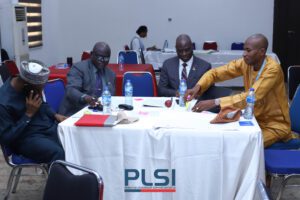
The group stressed the need for an institutionalised audit software and the involvement of the Supreme Audit Institution (SAI) in the digitisation and computerisation of other agencies of government i.e the audit office should be involved in the deployment of software to be used in preparation of financial statements in government agencies. They emphasised that technology simplifies the processing of large volumes of data into summarised, actionable information, ensuring accuracy, genuineness, and reliability. The need for data security and compliance with institutional requirements was also highlighted.
Output from Discussion Among Anti-Corruption Agencies

The group discussed the typical workflow, including manual and online petitions, and the approval process for complaints and investigations. They noted that technology can improve accessibility and dissemination of information and ensure data integrity. The importance of data protection policies and compliance with existing laws and ethical standards was underscored. Capacity building and the availability of technology for investigations were also deemed crucial.
Output from Discussion Among Public Accounts Committees (PAC) Responses
This group of accountability actors highlighted the manual process of collecting and reviewing financial and audit reports, suggesting the adoption of automated data collection tools. They noted that technology could accelerate the review process of audit reports and facilitate evidence-based decision-making, reporting, accountability, and follow-up. Concerns about data security, consent, compliance with regulations, and third-party risk were also raised.
Output from Discussion Among Civic Actors
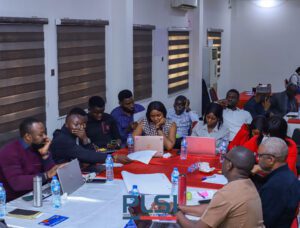
Civic actors whose interventions are strategic to the public accountability landscape discussed the impact of technology on research, communication, and mass media campaigns. They emphasised that technology including artificial intelligence (AI) could enhance the reach and effectiveness of CSOs in promoting accountability and anti-corruption efforts. However, they emphasized the need for clear terms and conditions regarding the use of private data. The group highlighted the importance of a national AI governance structure and policy that aligns with international standards. They stressed the need for technical support in the design, use, and adoption of systems. Collaborative support, adaptation and awareness, synergy, and the use of both structured and unstructured data to improve work were identified as key factors in helping anti-corruption agencies leverage AI to achieve their mandates.
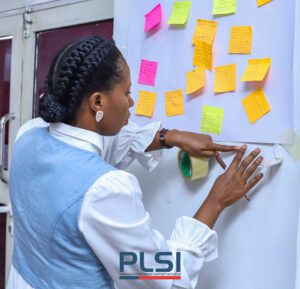
Participants responded positively to the revamped “Value for Money” platform, noting its timely, user-friendly potentials to swiftly generate and submit petitions to anti-corruption agencies for onward investigation of fiscal and procurement infractions in the utilization of public resources, thereby contributing to improved public service delivery. However, concerns about data privacy, protection, and the platform’s vulnerability to cyber-attacks were raised.
Conclusion
Without effective public scrutiny, the risk of money being lost to corruption and misappropriation is vast. Citizens, rightly so, are demanding more transparency around the process for awarding government contracts. In the end, corruption hurts the poor the most by reducing access to essential services such as health care, education, clean water and infrastructural development.[3] Leveraging technology to enhance transparency and accountability in all aspects of government is crucial. By utilising AI, we can identify and mitigate corruption risks and demand accountability early on. This effort is a key component of our broader initiative at PLSI to empower citizens with technology for greater accountability.
The PLSI focused group discussion spotlighted the transformative potential of emerging technologies like AI in enhancing accountability in Nigeria. By fostering a collaborative environment and addressing key concerns, PLSI is paving the way for more effective anti-corruption efforts and improved public service delivery. The insights gathered from this discussion will inform the deployment and optimization of the “Value for Money 3.0” platform, making it a robust tool in the fight against corruption and promotion of good governance, transparency, and accountability in Nigeria.
[1] https://blogs.worldbank.org/en/governance/generative-artificial-intelligence-enabler-citizen-engagement
[2] https://www.researchgate.net/publication/373216032_Emerging_Technologies_and_Accountability_A_Discourse_of_Pitfalls_and_Progresses
[3] https://blogs.worldbank.org/en/governance/can-artificial-intelligence-stop-corruption-its-tracks
